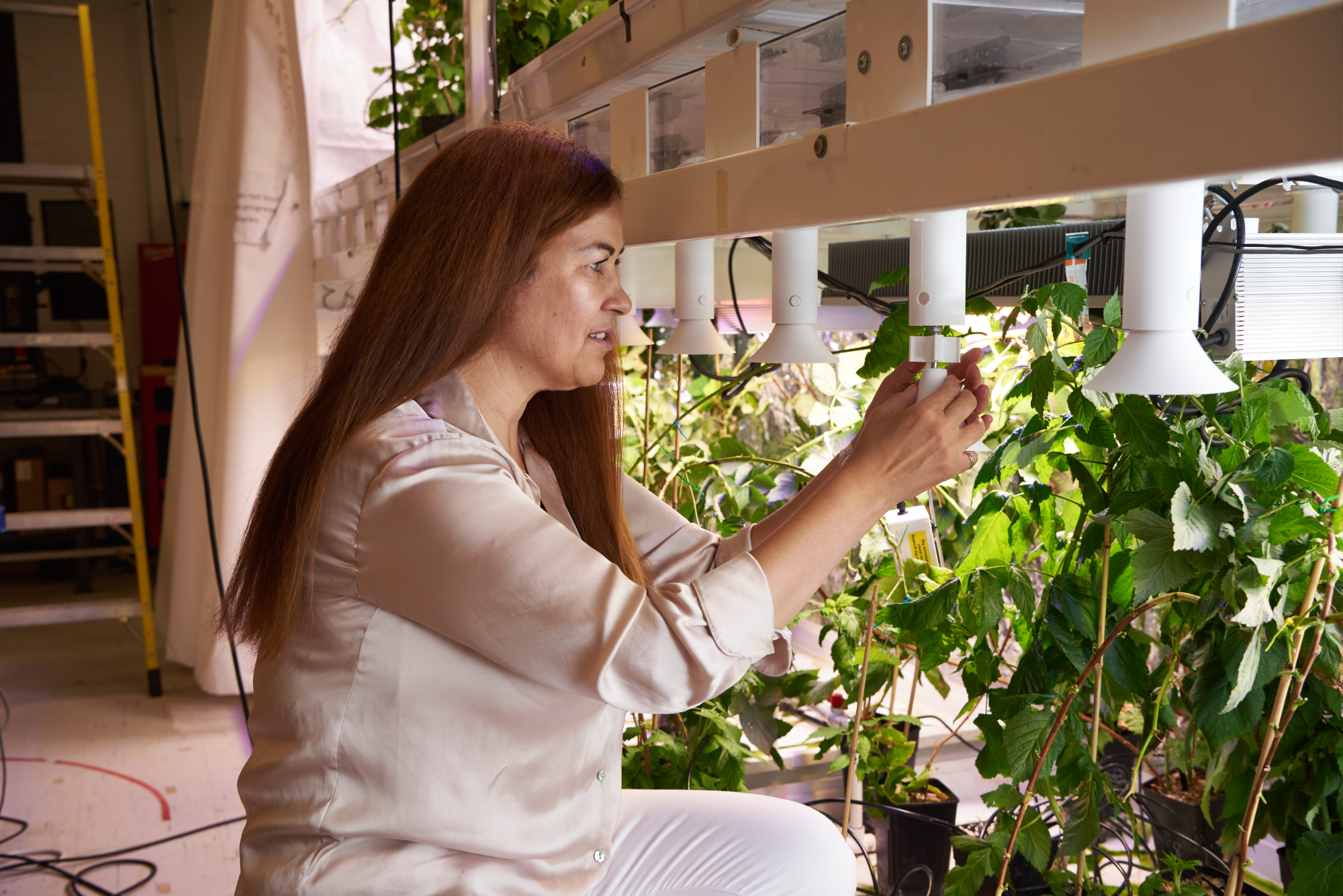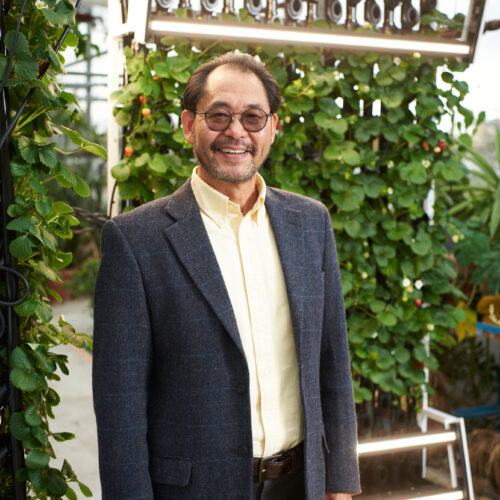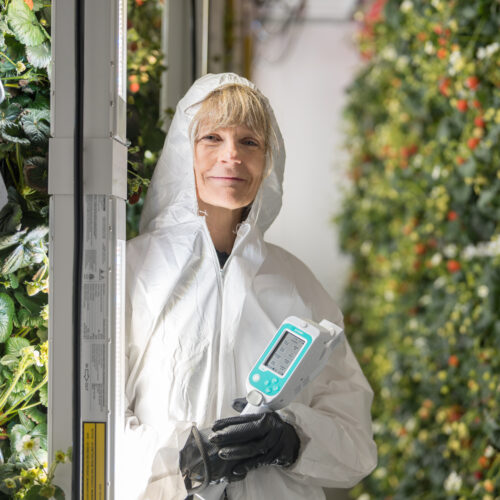For Drs. Habiba Bougherara and Lesley Campbell of Toronto Metropolitan University (TMU), innovation often starts with asking the harder question: Why not?
Why not choose a berry that’s often considered too fragile, tall, or difficult to grow indoors? Why not reimagine pollination without bees? Why not build a system that lets growers across Canada and beyond rethink how food is produced sustainably? The team at TMU is setting out to do all of these things.
With backgrounds in engineering and botany, respectively, Bougherara and Campbell are developing a scalable, flexible system for growing raspberries indoors—an approach that could help make Canada more self-sufficient in berry production while addressing mounting pressures on land use, pollination, and food security.
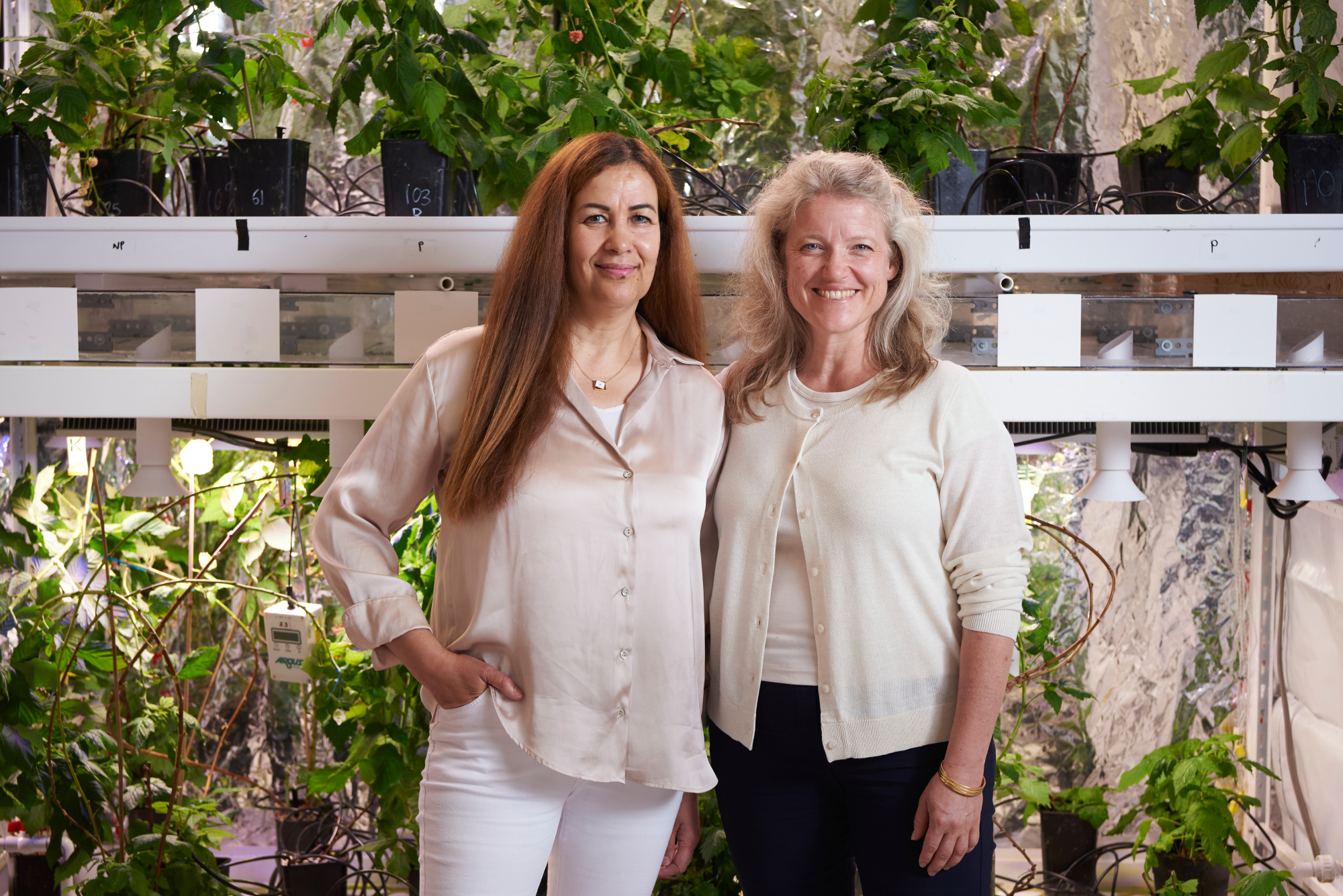
Working with the “Joan” raspberry cultivar, the team’s goal is to shorten the plant’s typical eight foot height to about four feet, creating a more compact, faster-growing crop. The shorter growth cycle could make indoor raspberry production efficient and economically viable for the first time. The pilot trials during the Shepherd Phase have already achieved remarkable results, including a 350% increase in yield compared to outdoor farms. The team is developing a pilot facility called MoFarm, a first-of-its-kind vertical farm in Quebec that will demonstrate a complete, closed-loop production system using bee-free pollination.
At the heart of this team’s approach is Bougherara’s patented bee-free pollination system—an autonomous airflow technology they first developed during the Challenge’s Shepherd Phase. The system mimics natural pollination while maintaining a consistent microclimate for the berries, ensuring stable yields without relying on actual bee hives. An additional benefit of the unique airflow pattern is the recycling of warm air and CO2, meaning lower resource use and input costs for growers.
This innovation couldn’t come at a more urgent time: global bee populations are under intense stress from pesticides, parasites, and climate change, and farmers are struggling to access enough healthy hives for pollination. Not to mention, greenhouses tend to have high mortality rates for bees.
“Our technology offers a safe, consistent alternative,” says Bougherara. “It means growers can still produce high-quality fruit without depending on a fragile ecosystem service that’s becoming harder to secure.”
The TMU team’s Scaling Phase project is about turning their breakthroughs into real-world solutions, and collaboration is integral to their work. Their growing network of partners includes Dunya Habitats, Montel, and Demers to prototype and test the technology in both container farms and greenhouse environments.
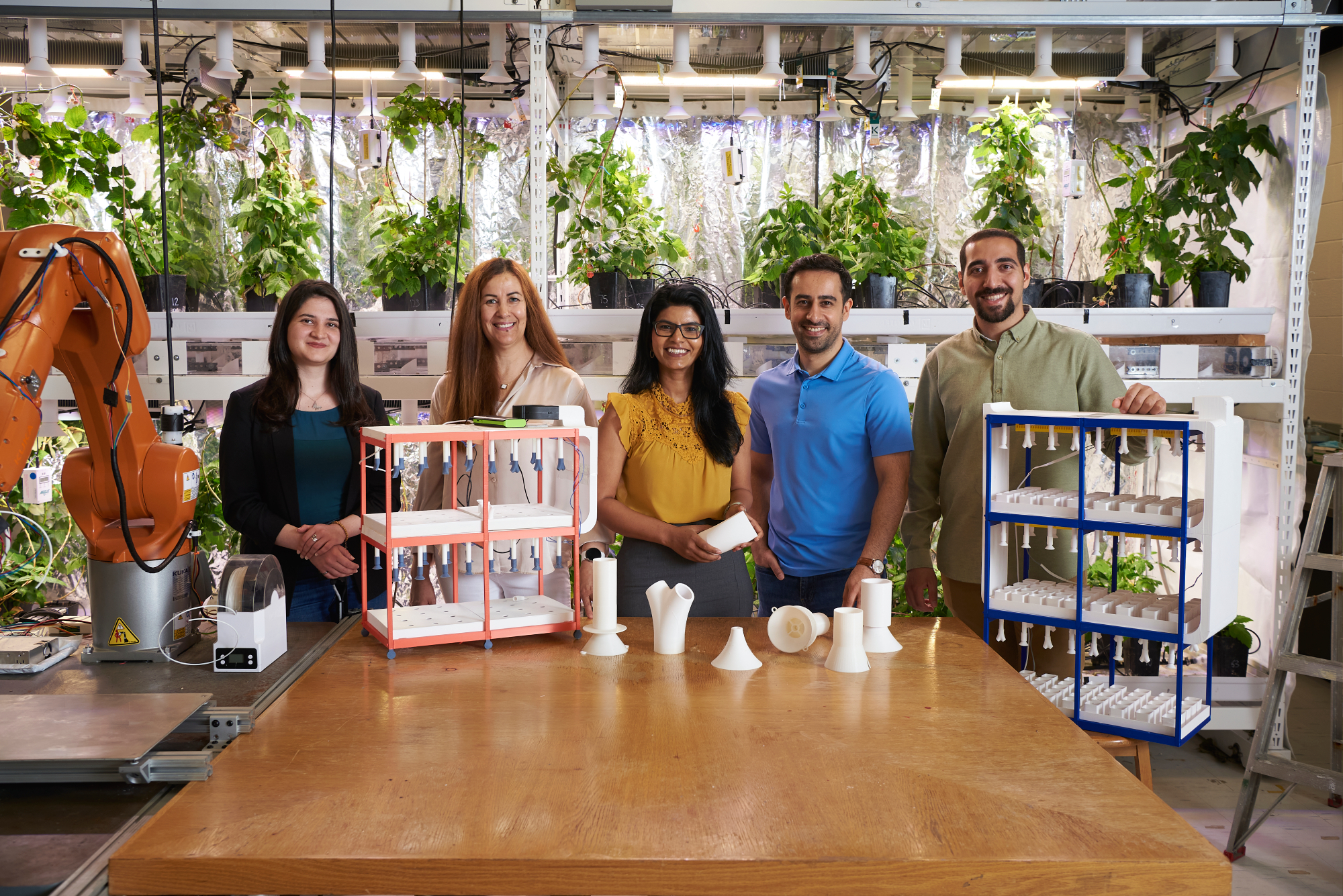
“This is where science meets industry,” says Campbell. “We’ve moved from proof-of-concept to asking, how do we make this usable, scalable, and commercially viable? That’s where partnerships are so critical.”
For both researchers, the work is personal and collaborative. “It’s been a real growth process for us,” Campbell reflects. “Habiba and I come from very different disciplines. I grew up on a farm, and this project has really deepened our partnership. We’ve had to think like entrepreneurs, like engineers, and like farmers, all at once.”
The duo’s leadership also embodies a quiet transformation within Canadian agriculture—more women are at the forefront of technology and food innovation, and mentoring the next generation of agtech leaders. Bougherara and Campbell’s long-term vision reaches beyond raspberries: the modular, bee-free system could support other high-value crops such as blueberries, strawberries, and even tomatoes, bringing flexibility and resilience to a sector navigating climate uncertainty and rising costs.
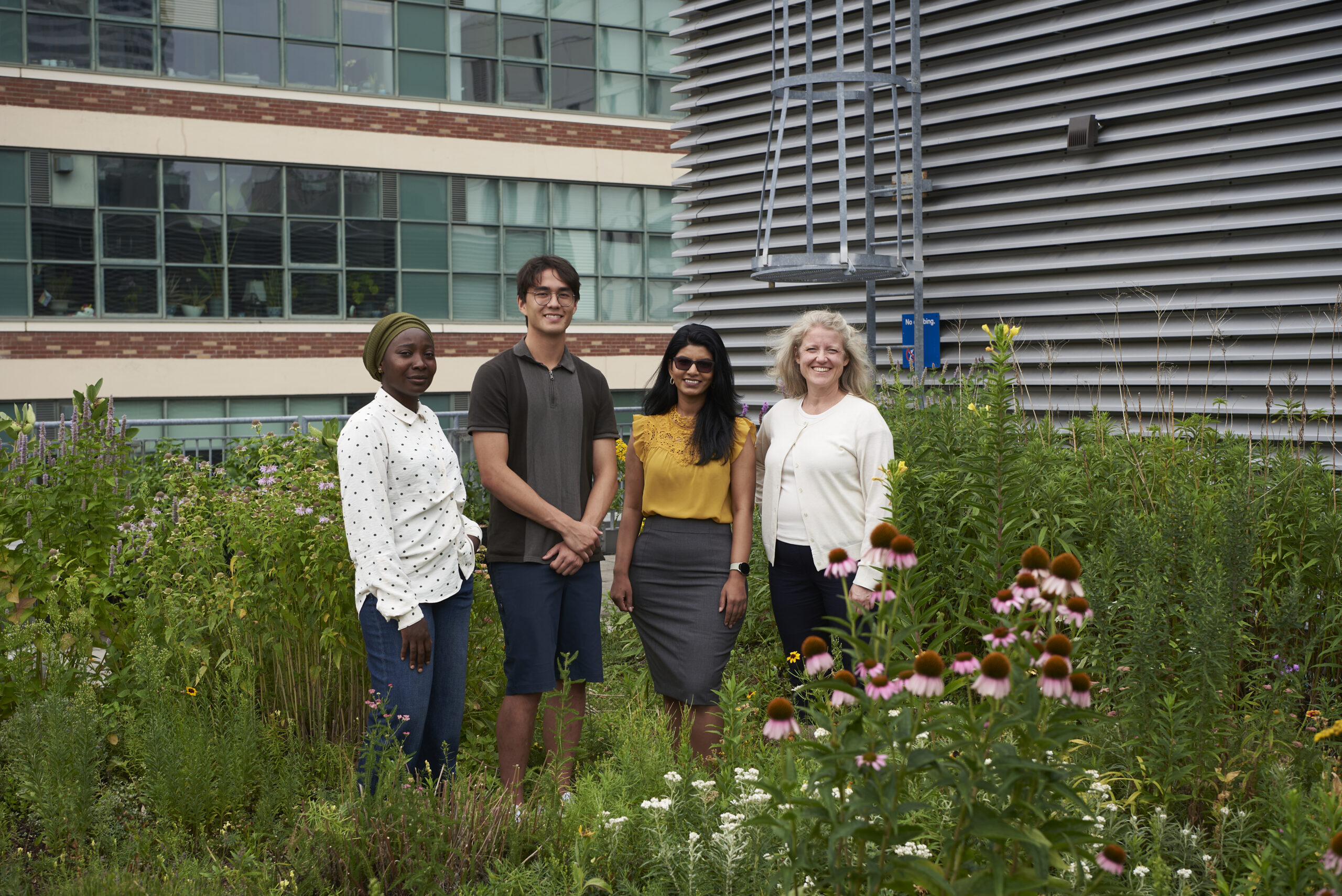
“If we can make raspberries thrive indoors,” Campbell says, “we can open the door to a whole new way of growing food sustainably, locally, and intelligently.”
For TMU’s Campbell and Bougherara, the raspberry isn’t just a crop, it’s a catalyst for change.

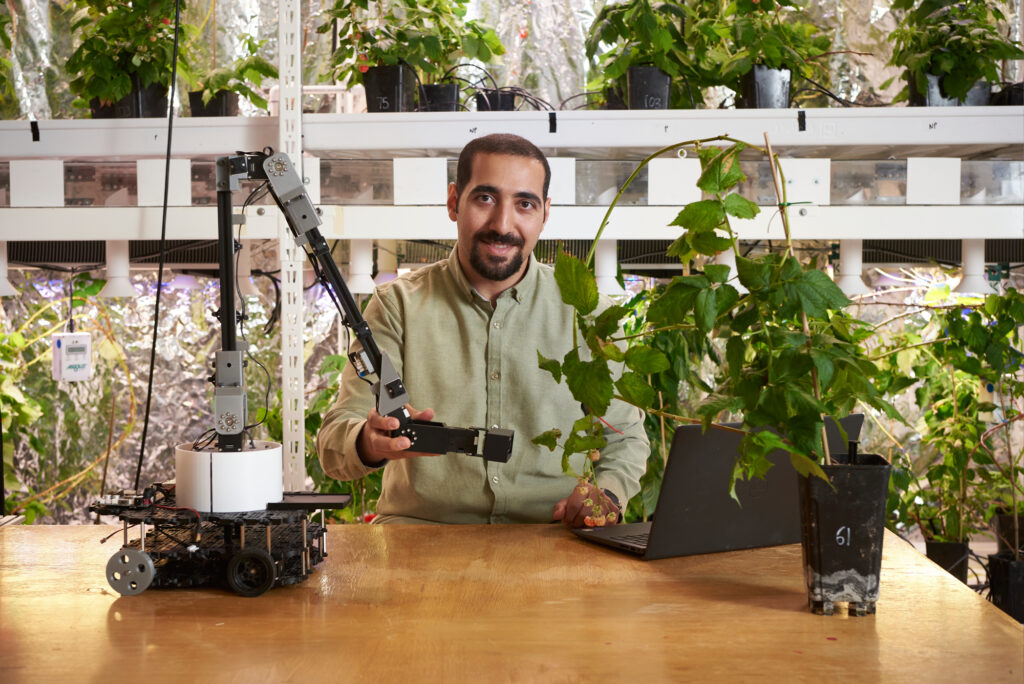
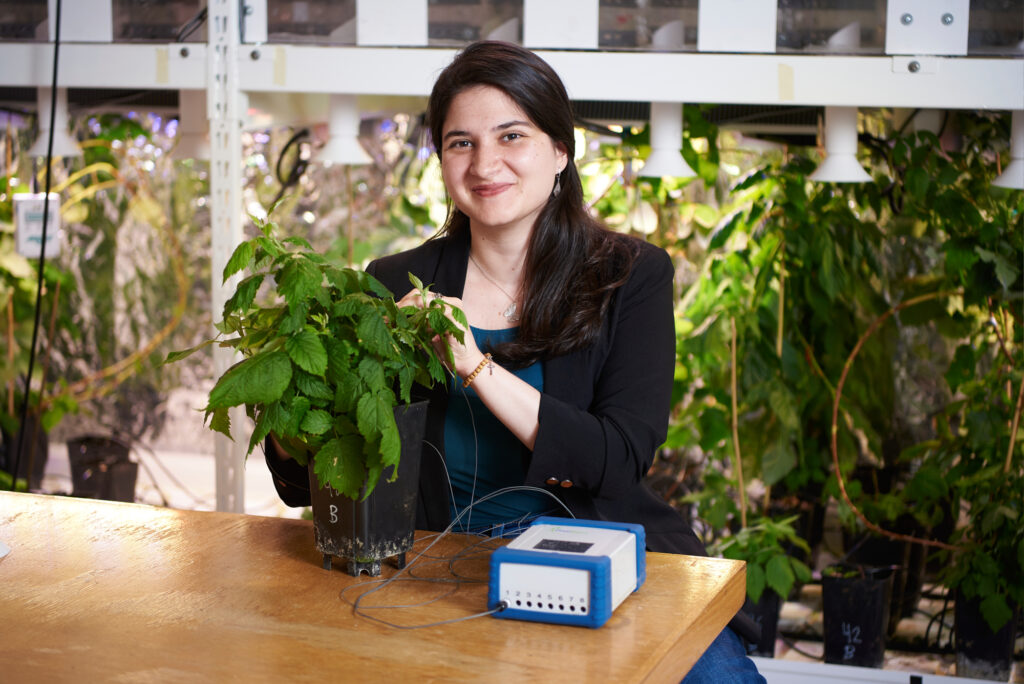

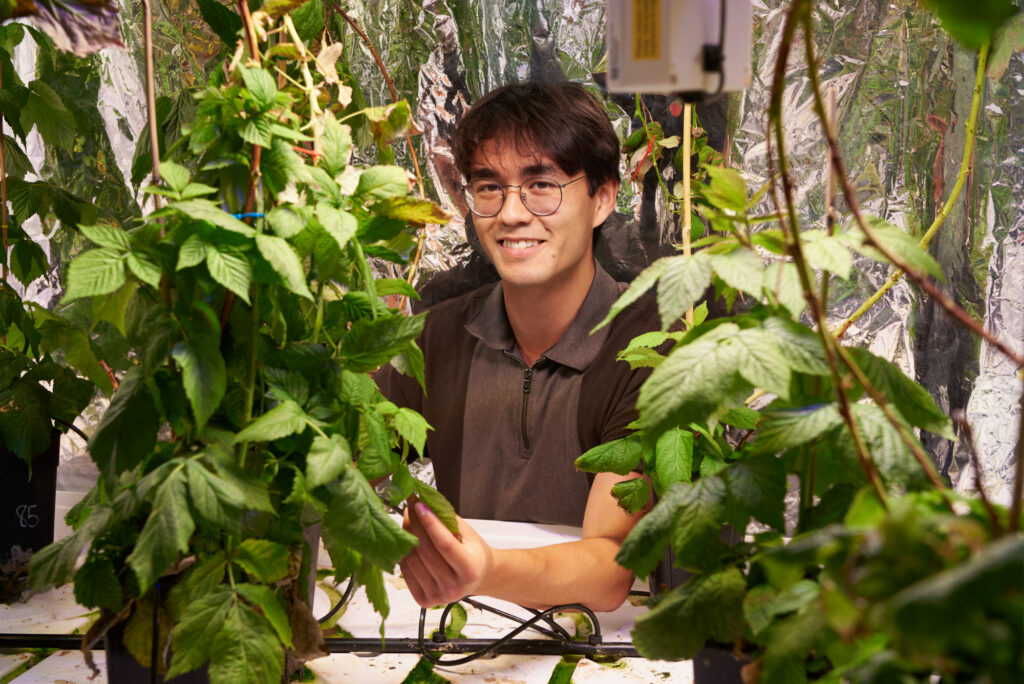
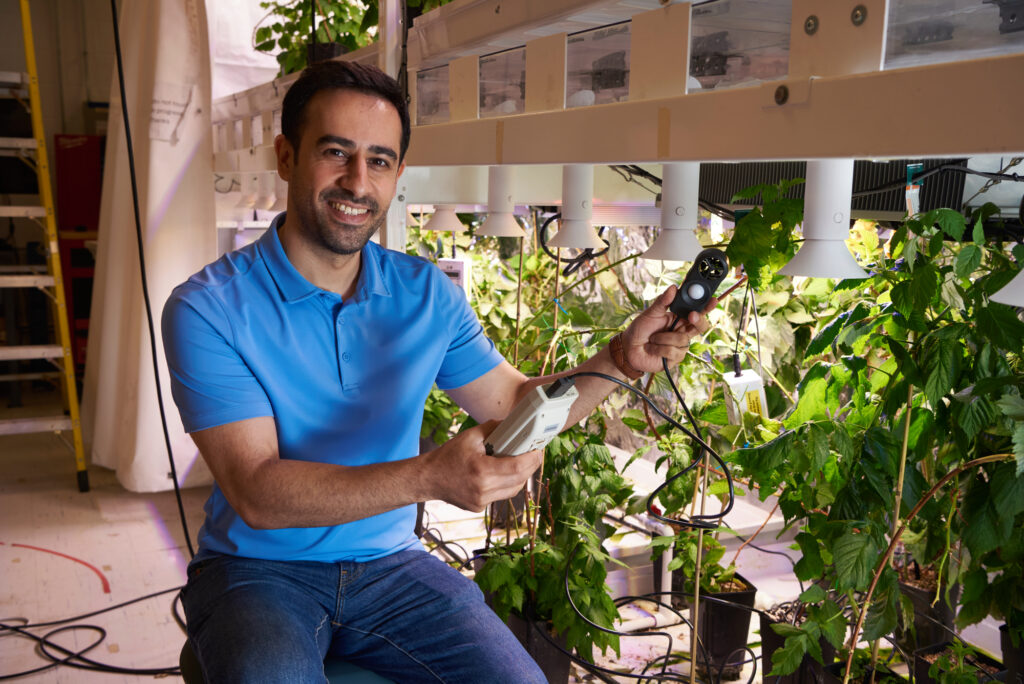
Collaborators
- Demers
- Dunya Habitats
- Montel

